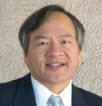What Do I Get Out of It?
September was a busy month for NASW as we were greeting new social work students across the state and the country inviting them to join NASW. I made the following remarks at a recent new social work student orientation at Cal State Bakersfield.
Why are you in social work? Perhaps some of your family members asked you that when you choose social work.
The vast majority of you will say it is because you want to help people. Do you need college to do that? I think you’ve answered that because you’ve enrolled in the program.
Some of you have had the experience of helping people, some of which has been successful and some not. In this school and in your field placements, you’ll learn what makes for success and what you need to learn to be successful.
By choosing a graduate degree in social work, you’ve also chosen to be a professional. A professional is more than someone who has some skills; a professional in human services is a critical thinker and has a professional self.
A professional with critical thinking thinks beyond meeting the immediate needs of a family or client, but looks at how the environment can shape individuals and families, a community and society. Hence, a social worker has a macro perspective.
It is rare that an individual social worker can single-handedly influence environmental factors, but in concert with others great progress can be made. Often social workers join a professional association such as NASW to help promote public and social policies that not only benefit their clients, but also people and communities as a whole. This includes social action and social justice.
For example, take NASW’s Lobby Days educational program, which takes place every April. This year’s topics included expanding health care to undocumented immigrants, setting a statewide $15 minimum wage, and ending the racist policy of maximum family grant in the CalWorks program. These are things you need NASW to do and NASW needs you to join as members to do these things.
In your own career as a professional, you’ll want to be respected, sought after and listened to not only by clients, but also by your colleagues, leaders and your community. That all starts with professional self and one of the keystones of professional self is the NASW Code of Ethics. An ethical professional social worker knows how to distinguish between personal and professional self so as to not mix up boundaries with clients. NASW has an ethical program to help members through education and consultation, including a free online ethics course you can take at www.naswca.org.
Professional social workers know they don’t know everything so they must have inquiring minds and seek out continuing education (CE). NASW has an extensive CE program—both in person and online—with great discounts for members and students. Another opportunity is the NASW State Conference that will be held October 9-10 in South San Francisco.
Professional social workers might seek out licensure and NASW is your best resource for getting licensed. Licensure represents not only advanced training, but also a career pathway to higher paying jobs.
Now is the time to join NASW with very low student dues. Visit www.socialworkers.org.
As a social work professional in your career, you want to hear the following:
- “That’s a job for a social worker.”
- “Let’s ask a social worker.”
- “She or he is a member of NASW.”






